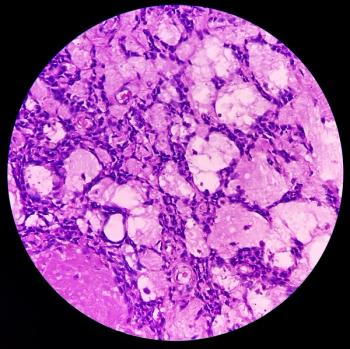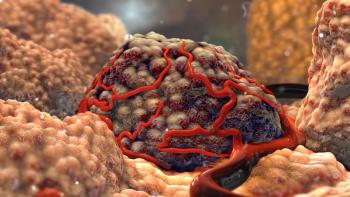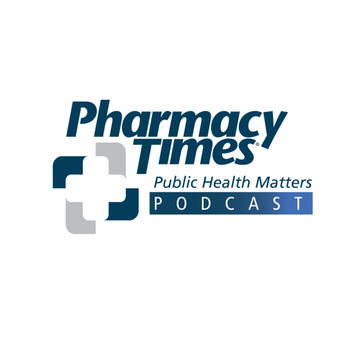
Use of antidepressants and other classes of prescription drugs can increase the risk of driving impairment compared to nonuse, so clinicians and pharmacists should review these risks with older adults.

Use of antidepressants and other classes of prescription drugs can increase the risk of driving impairment compared to nonuse, so clinicians and pharmacists should review these risks with older adults.

Parents are not fully educated on the risk of meningitis infection and preventive efforts for their children.

In the first systematic review using statistical methods, investigators found switching from a reference biologic to a biosimilar was comparable in safety, but no conclusion on immunogenicity could be drawn.

The intravenous formulation of secukinumab is administered in monthly 30-minute, weight-based dosing and requires no pre-medication or lab monitoring.

Cheri Schmit, RPh, Senior Manager of clinical Solutions at Cardinal Health, discusses the role of the pharmacists, how the pharmacy profession has changed, and what is to come in the field.

Tune in to this episode of Pharmacy Focus: Student Edition to discover how innovative programs like Western University's 3.5-year pharmacy program are shaping the future of pharmacy education.

Roflumilast is the first topical agent indicated to treat psoriasis in sensitive intertriginous areas of the skin.

Expert discuss access barriers for the COVID-19, respiratory syncytial virus, and influenza vaccines, and ways to facilitate uptake.

Choice of therapy should be selected based on patient needs and conditions.

Harmful LDL functionality contributes to an increase of cardiovascular disease in those with obesity but could decrease within weight loss.

The use of psilocybin, repeated at a low dose, could offer a new form of treatment for individuals with differing forms of mental disorders.

Not only did the Navya-Patient Preference Tool help patients with decision-making, but groups who used the tool were more likely to receive their preferred form of surgery.

Ketamine topical cream may alleviate symptoms of PTSD without causing the adverse effects and abuse potential often associated with other forms of ketamine administration.

With World Standards Week on October 10 to 12, 2023, it is a key time to assess preparation for the official date for revised USP General Chapters <795> and <797> on compounding, as well as the associated USP General Chapter <800> on the handling of hazardous drugs in healthcare settings.

Study is the first to compare SARS-CoV-2–associated sepsis and presumed bacterial sepsis on mortality and incidence.

Study findings indicated that many health care facilities are recovering from the COVID-19 pandemic and shortage of staff, which has caused door-to-balloon times to lag.

Little progress has been made in developing treatments that can help to stop Ewing sarcomas from spreading or coming back.

Patients often turn to dietary supplements for the management of osteoarthritis, one of which is turmeric.

Oncolytic polymers may be the answer to circumventing therapeutic resistance in cancer treatment.

Investigators found that the adjusted mean change in A1C was –0.62% for dapagliflozin compared to 0.41% for a placebo in patients with type 2 diabetes.

Compared with sulfonylurea, these add-on treatments were also associated with fewer diabetes-related cardiovascular and renal complications as well as avoiding hypoglycemia.

Naveen Mansukhani, BPharm, National Operations Director for Cardinal Health Retail Pharmacy Services, discussed how he is celebrating American Pharmacists Month.

Tune in to this episode of Public Health Matters to gain a profound understanding of health equity, the enduring racial disparities in health care, and the essential work of supporting individuals as they reenter society.

Study shows a a significant burden of hospitalizations associated with respiratory syncytial virus during the 2021-2022 season compared with the prepandemic period.

mRNA-1083 (Moderna) was found comparable to the standard dose of Fluarix (GSK) in adults aged 50 to 64 years and Fluzone HD ( Sanofi) for influenza and Spikevax (Moderna) for COVID-19.

An overview of antidepressant medications and their indications to inform health care professionals of their wide use and to better understand which antidepressant to recommend based on patient-specific characteristics.

The results also indicate an association with increased risk of colorectal and noncolorectal gastrointestinal cancers as body mass index increases over time.

Hispanic individuals have been found to be more likely to develop complications as a result of diabetes compared to those who are non-Hispanic White.

Laura Akers, PharmD, RPh/CPh, MBA, BCOP discusses the role of the pharmacist, how the pharmacy profession has changed, and what is to come in the field.

Up to 81% of patients with cancer take medications to treat their other comorbidities.